
Coatings for Glass Melting Electrodes
Elmet Technologies provides coatings for glass melting electrodes with outstanding protection against oxidation at high temperatures. Our advanced anti-oxidation coating technology is proven to protect and extend the lifespan of the electrodes.
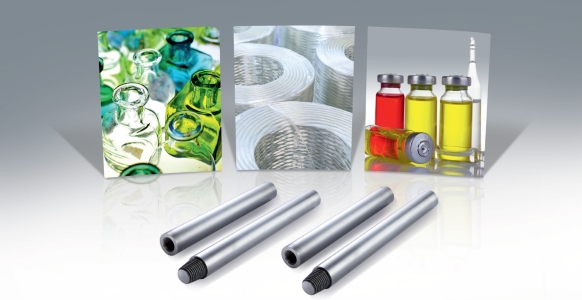
To mitigate the possibility of glass melting electrode (GME) damage at high temperatures, these coatings are fully compatible with molybdenum. The coatings give more protection against oxidation from flames, air, oxidizing chemical, and oxygen-rich atmospheres.
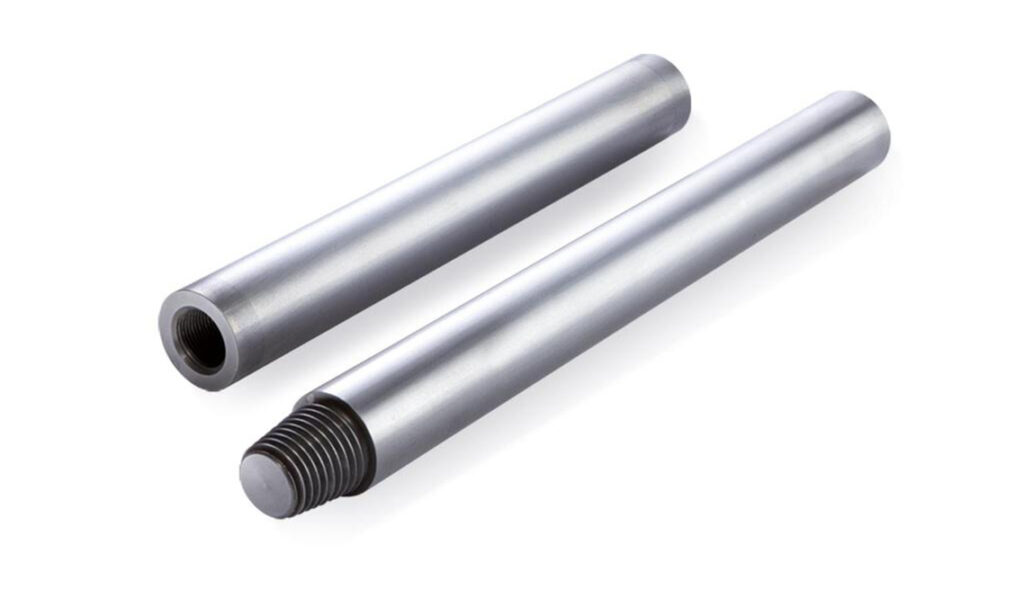
Anti-Oxidation CoatingS for Electrodes
Elmet Technologies is constantly improving its processes and capabilities with regards to coatings for glass melting electrodes. These ceramic coatings cannot spall or separate as they are chemically bonded to the metal surface. Since the oxidation resistant coatings are produced through a chemical vapor deposition, they can be uniformly applied to all surfaces, including the interior of thin tubes.
Why Use Coatings For Glass Melting?
- Mitigate risk during initial furnace start-up
- No other detrimental effects upon the glass
- Ability to withstand extremely high temperatures
- Prolong the service life of glass melting electrodes
- Reliable protection for electrodes against oxidation
- Protection from air, oxygen-rich atmospheres, chemicals, and flames
Coatings for Glass Melting Electrodes
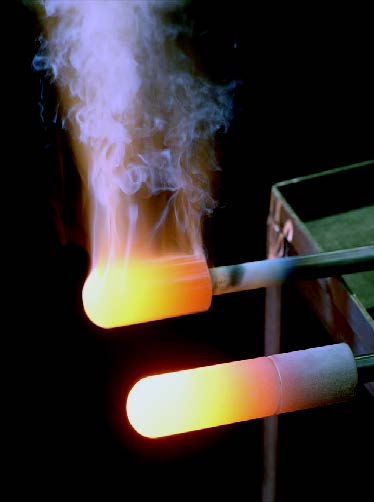
Oxidation-Protective Coating on Molybdenum
The coating process provides molybdenum and other refractory metals with outstanding protection against oxidation at high temperatures. It is a ceramic coating that when applied to molybdenum has the nominal composition of MoSi2. The coating is produced by heating the refractory metal in silicon tetra-fluoride gas (SiF4). Being integral with and chemically bonded to the metal surface, it cannot separate or spall. The normal coating thickness is ~0.125mm and is applicable to virtually any shape component.
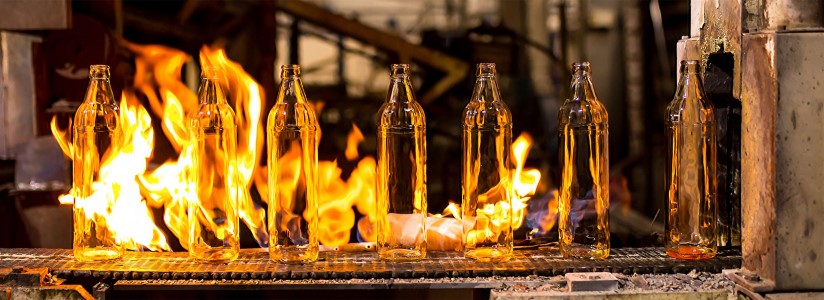
Produced from a gas phase, it is possible to vary the coating thickness and apply the coating uniformly to all surfaces, including the inside of thin tubes. Reliable and reproducible, the coating gives protection against oxidation from air, oxygen-rich atmospheres, oxidizing chemicals and flames. The coating is fully compatible with molybdenum. While ideally suited as a coating for glass melting electrodes, our proven coating technology also proves beneficial for other molybdenum components utilized in the glass industry.
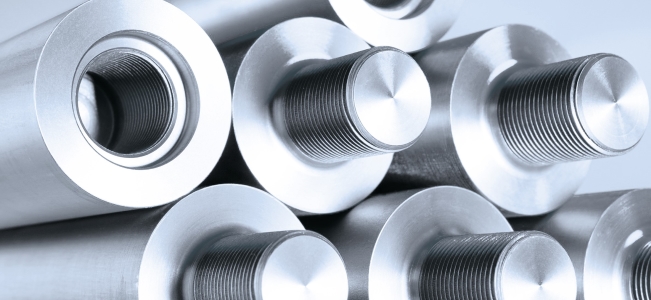
As the coating is silica based, dissolution has no coloration and other detrimental effects upon the glass. The main purpose of coatings for glass melting electrodes are to protect the components from oxidation during the critical start-up period.
Product Applications for Coatings
Our coatings exhibit reliable performance in various product applications, including:
- Rocket nozzles and guide vanes
- Turbo-jet engine blades, blast deflectors, and silencers
- Hot extrusion dies for ferrous and non-ferrous materials
- Glass melting electrodes and other furnace components.
- Plate heating elements, stirrer rods, dies, and casting nozzles
- Furnace heating elements, coils, racks, rollers, and conveyors
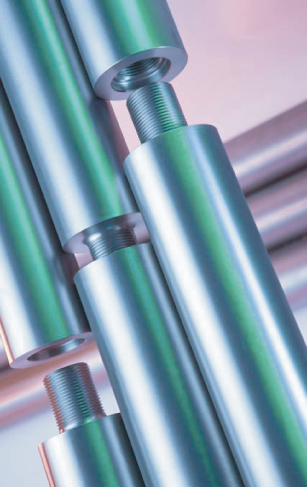
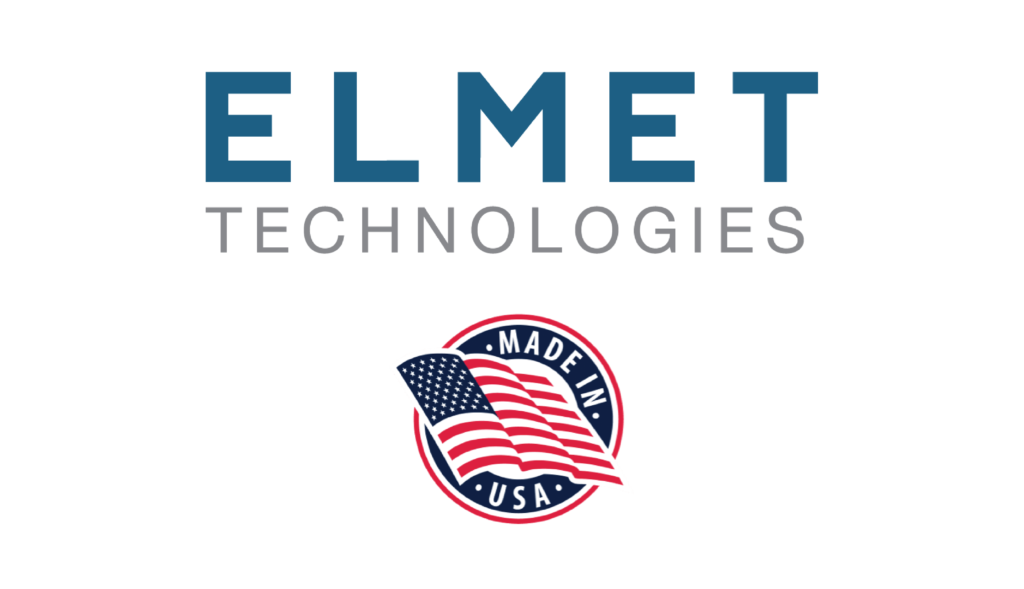
Your Partner In Coatings for Glass Melting Electrodes
Elmet Technologies is your partner in advanced coatings for glass melting electrodes. We provide an extensive range of refractory metal capabilities, products, services, and solutions related to powder metallurgy, alloy development, extrusion, additive manufacturing, forging, machining, and more.